‘There is nuance here’: Inside Prada Mode Abu Dhabi, hosted by Theaster Gates
Wallpaper* travels to Abu Dhabi for the latest edition of Prada Mode, the Italian house’s immersive arts-led programme which this year was guided by the American artist Theaster Gates in a site-specific space in the city’s MiZa district
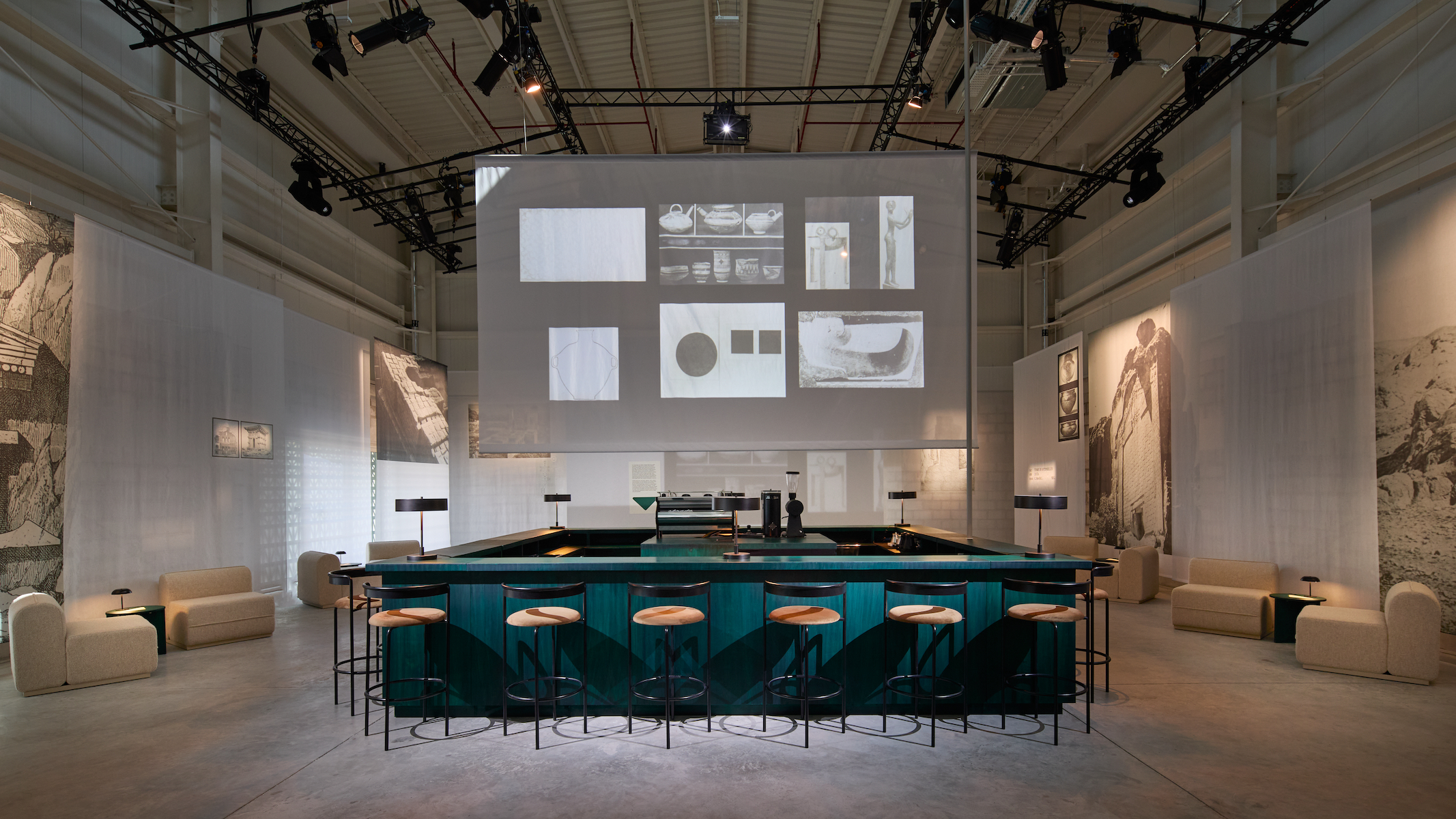
It’s a bright morning in Abu Dhabi, and 40 journalists from around the world are filing into a soft circular structure resembling a mini duomo. There’s a perceptible mood switch from the cubic gallery-slash-bar where we had all been drinking green juices moments before, sort of akin to entering a church on a blinding summer’s day. Voices hush, eyes adjust to the dark, and people find places to sit on the plush terracotta-coloured carpet. In comes the man we are all here to meet, the radical urban planner, spiritual potter, and internationally acclaimed artist who is the mind behind this year’s edition of Prada Mode: Theaster Gates.
‘I thought that I would go kindergarten style and just try to keep it as simple as possible,’ the Chicago-based artist says, explaining the energetic duality of the site-specific installation he has built in the MiZa district of the city, a burgeoning creative neighbourhood along the waterfront that was once a working port in the 1970s. ‘When establishing the emotional infrastructure of a project, the first few words are really important. I started by saying: “The show will be based on a circle and a square.” The circle, in my case, representing community, democracy, the feminine, the creative; the square representing the rigid and infrastructural. I hoped that would be enough of a prompt that great things would emerge.’
Inside Prada Mode Abu Dhabi, hosted by Theaster Gates
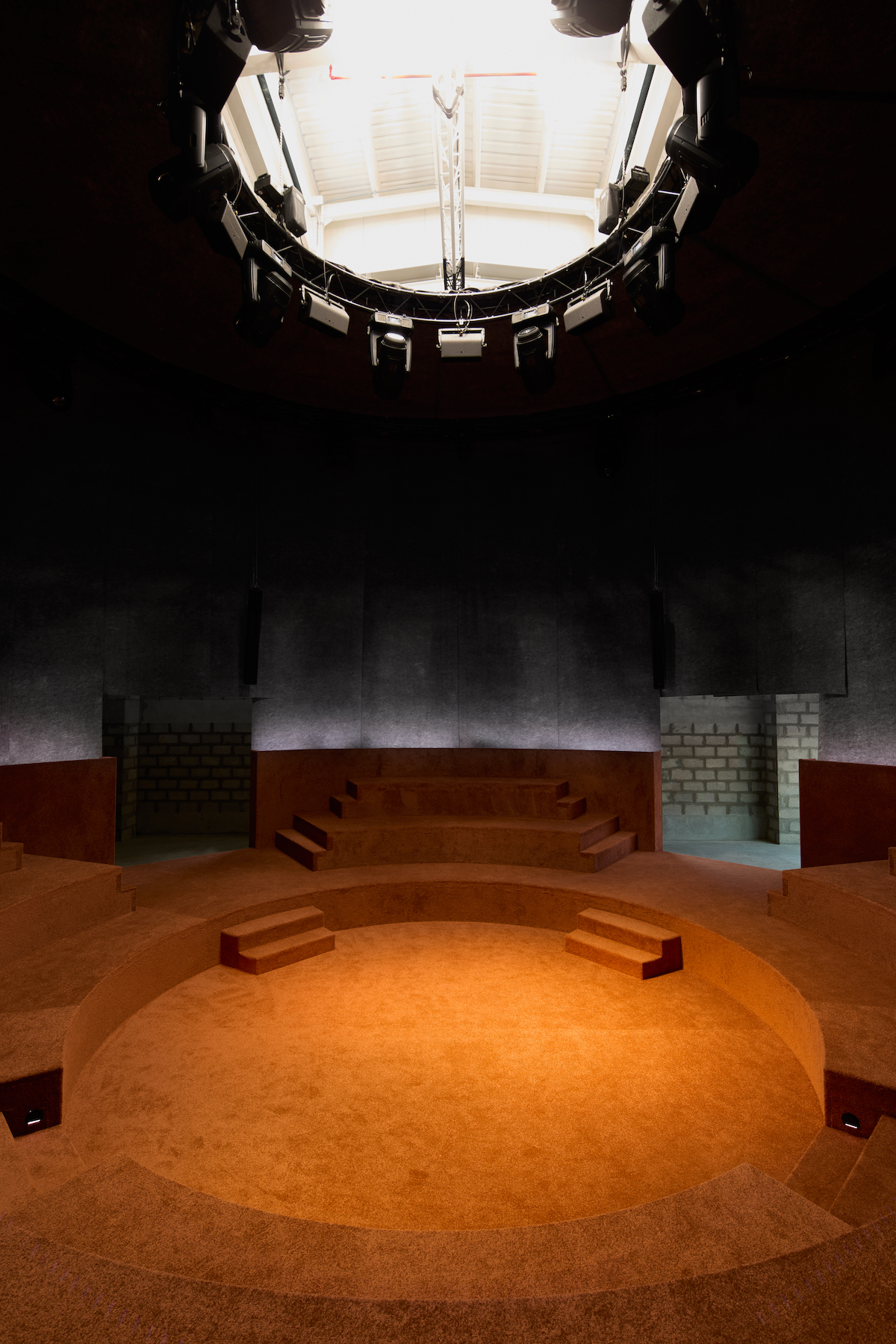
The soft circular structure at the heart of Prada Mode in Abu Dhabi, hosted by the American artist Theaster Gates
If you’ve not heard of it before, Prada Mode is an immersive arts-led programme that merges installation, music, food, and performances, held in culturally exciting cities around the globe. Starting with Carsten Höller in London back in 2008, each edition has been guided by the vision of an artist, with past iterations shaped by Damien Hirst, Martine Syms, and Kazuyo Sejima (one half of RIBA Gold Medal-winning Sanaa). Uniquely, Gates is the only artist to have hosted Prada Mode three times. As a social aggregator driven by a mission to ‘invite people to engage, participate, and collaborate’ – to ‘wake things up’ – he has approached this year's edition with the aim of offering a new perspective on a city often misunderstood by the West.
‘The sacred is present in everyday life in the UAE. I thought we would try to bring some of that here’
Theaster Gates
Gates was born the youngest of nine and the only boy in his family. The son of a teacher and a roofer, he was raised to understand the value of learning and making things well. He trained in sculpture and urban planning, but it was a visit to the small Japanese town of Tokoname to learn the craft of pottery in his twenties that shaped his philosophy as an artist. There he saw how a clay pot can be practical, used to drink tea every morning; or spiritual, carrying the ashes of a loved one. He began to approach the ‘vessel’ as a metaphor for the multiplicity of life, and has, ever since, seen his practice as a way of honouring the ‘spirit within things’.
‘I think that studying clay helped me understand that ugly things, muddy things, or things that are unformed are just waiting for the right set of hands,’ he once said. Much of the forces that have powered his later work – to study, to record, to endure, to seek connection – can be traced back to Tokoname, he tells the room in Abu Dhabi. ‘From 2004 to 2024, I maintained a relationship with this small town, and kept talking about pots until the world was ready to talk about pots. I'm always telling people they should stay on their square, and eventually, maybe the world will be interested in the things you are.’
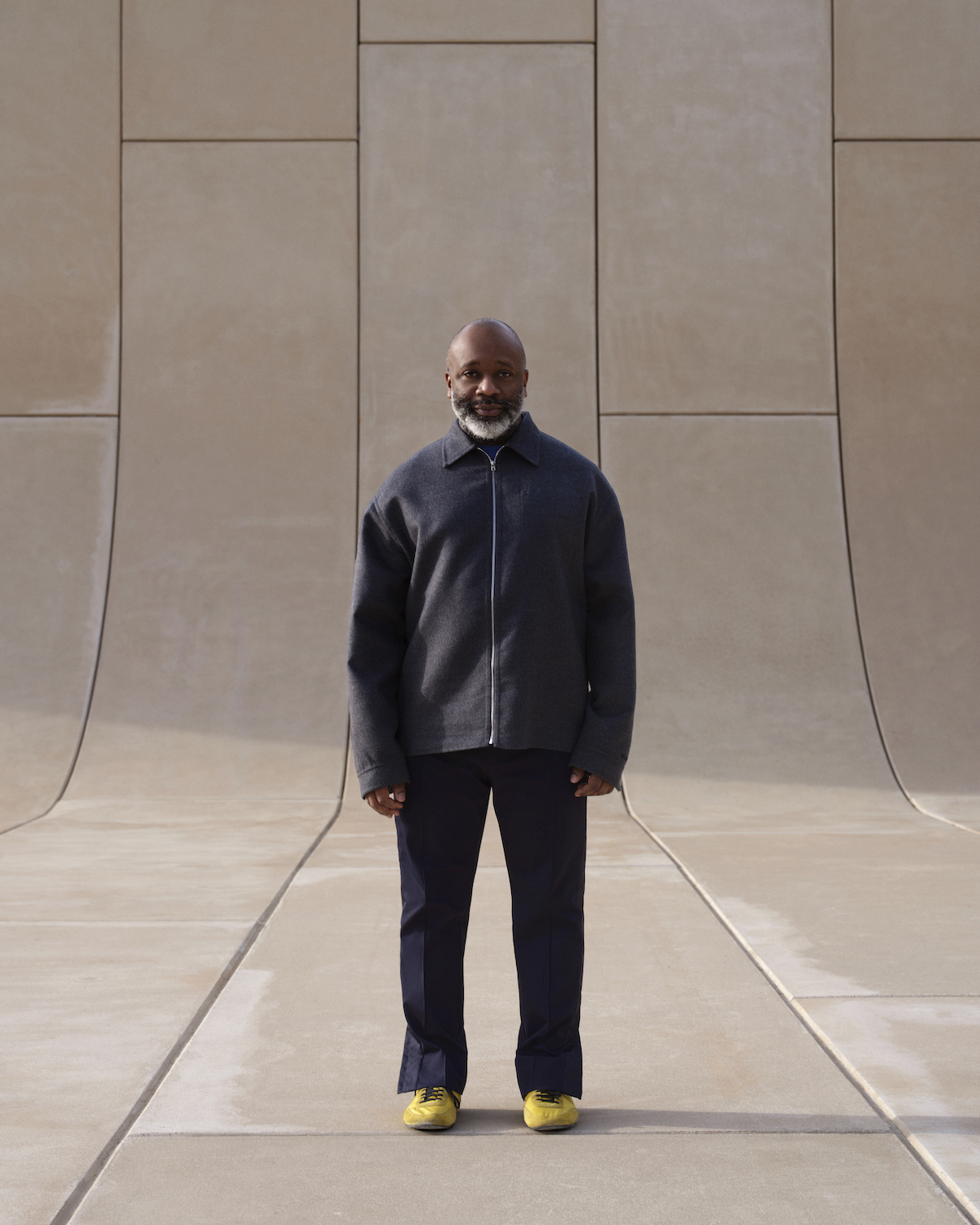
Theaster Gates
Gates applies this sense of grounding to Prada Mode Abu Dhabi. Rather than replicating the ‘bombastic’ party machine of past years, this time the artist wanted to be a bit more circumspect. ‘Driving around, you can't go a mile without running into really significant mosques,’ he says. ‘The sacred is present in everyday life in the UAE. I thought we would try to bring some of that here.’ First devising the installation space of the square and the circle – one expansive, where drinks flow and DJ sets bring an energy of celebration; the other a cosy embrace, a place to learn and reflect – then he thought about ways to bring the spiritual in. He decided the best way to do this would be through the voices of Arab women.
‘These kinds of projects can be so male-heavy,’ Gates explains. ‘I'm accounting for the gender biases that I've benefited from. I have eight sisters and I’m always thinking of them. If there's ever a platform to yield, I would like to yield my platform to the sisters.’ Leaning on curator Myrna Ayad and NTS founder Femi Adeyemi, Gates devised a programme spotlighting female talent from the UAE and Arab diaspora. These included talks with female artists reflecting on ideas of tradition and modernity, traditional weaving workshops with Awatef Al-Mesmari, explosive performances by girl band Seera and DJ Nooriyah, and delicious food by Salam Dakkak. ‘The idea was to start an artistic work by paying attention to what's present in front of you,’ Gates explains. ‘What's locally sourced, in terms of materials? What's locally harvested? In terms of knowledge, what's present? There is nuance here, and it's about the unearthing of that discovery.’
Wallpaper* Newsletter
Receive our daily digest of inspiration, escapism and design stories from around the world direct to your inbox.
Meanwhile, in the square space, an image curation printed on cotton sails gently flutters in the breeze. These were printed with images from Gates’ archive of 60,000 decommissioned glass lantern slides saved from the University of Chicago, depicting ancient artefacts, architecture and culture relating to the Middle East. ‘Beyond the circle and square, I was like, ‘What are people going to look at?’’ he says. ‘I was thinking about the UAE and the ways in which the West has constantly tried to understand it, but understand it to conquer or corrupt or absorb. I said to my team, “Let's pull up everything that feels in some way connected to the sacred.” It's a gross survey that is functioning as a kind of art history, architectural history, archaeological history.’
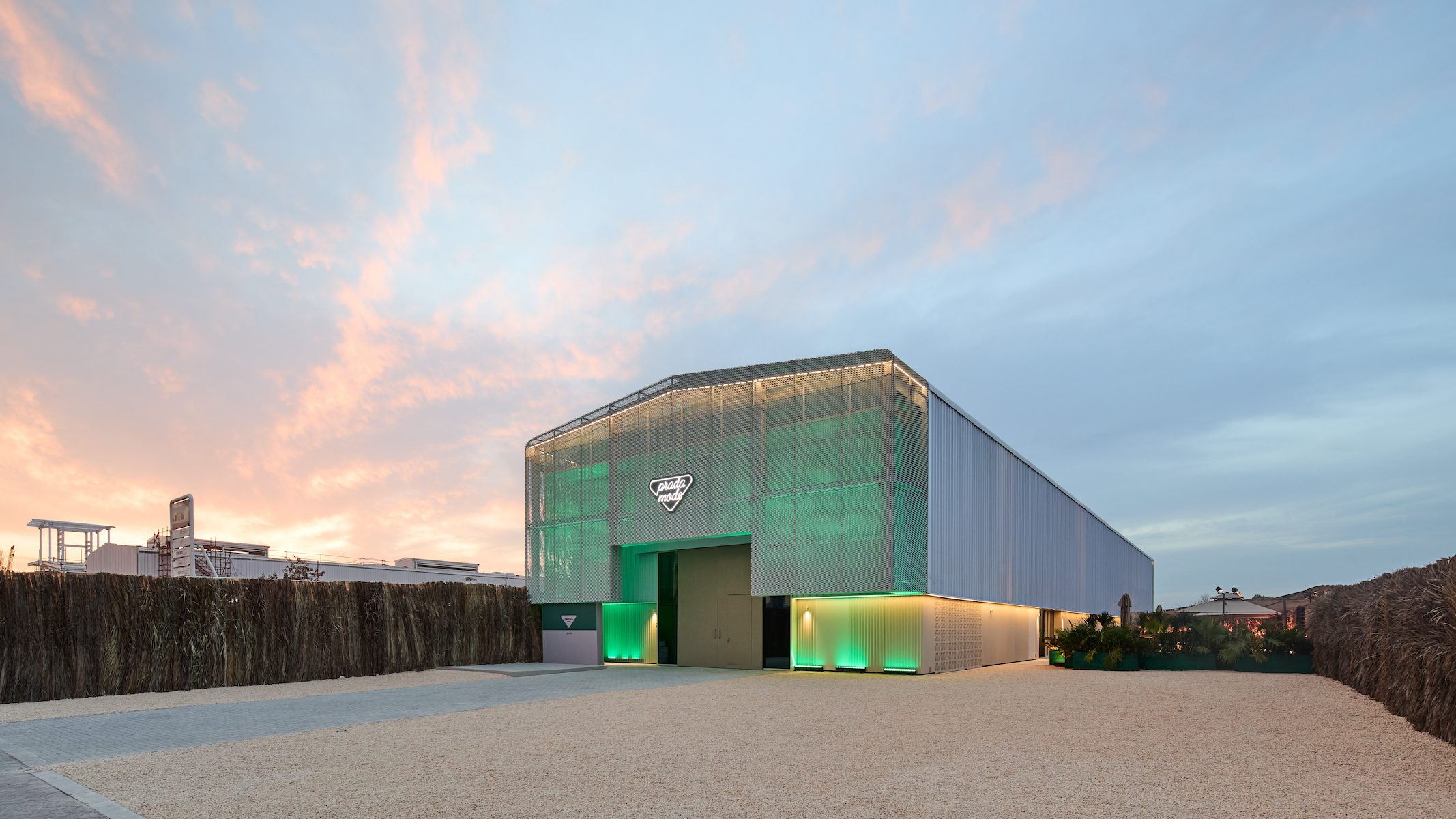
The exterior of the space, which was constructed in Abu Dhabi’s MiZa district
While Prada Mode is ultimately a party, Gates has used it as an opportunity to tell stories about the UAE that matter. The space reminds you of a few of his most moving projects. Namely, his regeneration of the neglected street he grew up on in Chicago, where two decades ago the artist saved a dilapidated house and transformed it into a library filled with 14,000 art books. Later, he turned the house next door into a listening space full of salvage records, then opened a soul food spot between the two. Awakening the road while attracting makers and artists, these sites have become vital archives of Black history and living, breathing places for community to gather.
Gates’ elegiac Serpentine Pavilion, Black Chapel, also comes to mind, created in 2022 as a tribute to his father after his passing. A circular structure reminiscent of the one in MiZa, it was inspired by the curves of a clay pot and the tarred materials his father used to repair roofs every day. Here too, a cultural programme of music, performance, and shared ideas that brought the installation to life. In every instance, it would seem, Gates reveals how his artwork itself is secondary to the people his projects unite. Really, they are vessels for connection.
‘The idea was to start an artistic work by paying attention to what's present in front of you. There is nuance here, and it's about the unearthing of that discovery’
Theaster Gates
It’s sites like this – where music, ideas, and tradition are shared – that are the reason Gates has such a close relationship with Prada in the first place. Miuccia Prada first met the radical artist in the basement of storied Soho jazz club Ronnie Scott’s in 2012. Gates was performing with his band The Black Monks and was in London for the opening of his show In the Event of a Race Riot at The Arts Club, a display of powerful works made from decommissioned fire hoses. The pair became instant friends, and the designer has brought Gates firmly into the cultural fold of the house in the years since, making him a co-chair of its Diversity and Inclusion Council, displaying two exhibitions at Fondazione Prada, and giving him free rein on projects like Prada Mode and the Experimental Design Lab, which offered a platform to young Black creative voices. ‘Prada's a family company in Italy,’ Gates says with a convivial laugh. ‘They could use some diversity, if you know what I mean.’
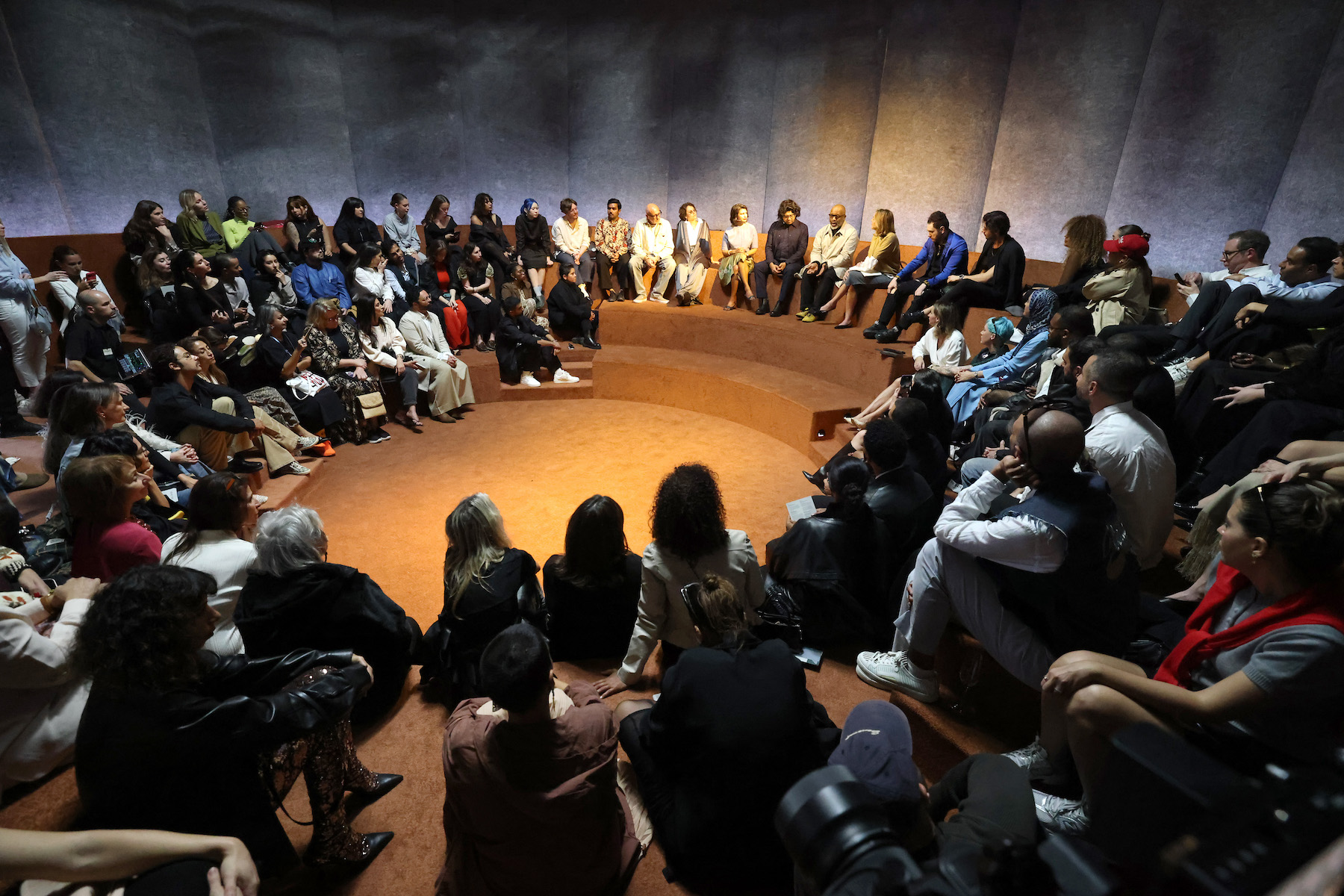
One of the Prada Mode talks, featuring Zain Masud, Vikram Divecha, Theaster Gates and Myrna Ayad
Speaking with natural wisdom and humour, Gates is a joy to listen to. One of the most interesting things he says about his practice comes at the end of the talk in the womb-like duomo, where he says he doesn’t see himself as a ‘community artist’, despite spending decades making art that unites people and ideas through space. ‘My project was not about Chicago as much as it was about demonstrating that there is wealth and riches right in front of you,’ he explains. ‘I'm not a community artist. I'm not a community activist. I'm just a guy. But my practice depends so much on having a willingness to be present with people who are great, in a place that is great, even though others haven't recognised yet how great it is.’
Here it feels like Gates is touching upon the West’s preconceived ideas of Abu Dhabi, perhaps as a place shaped by conservative values and explosive wealth. Driving around the city, it’s true that the lavish scale of its seven star hotels and newly built monuments – such as the Louvre Abu Dhabi, inside which are housed several of the world’s most valuable artworks – are a surreal sight to behold in all their glittering newness. Gates' celebration of the city, however, looks beneath the sparkly glamour of high rises and malls to the human: celebrating Middle Eastern traditions of hospitality, vibrant new voices in music and art, and the universal act of gathering.
‘We couldn't be here without the generosity of this place,’ he points out. ‘Without its belief in culture and fashion, but also a belief in itself. By pivoting from the party, I hope we can just be in dialogue and celebrate great voices. Celebrate them here.’
Prada Mode is open to the public today, 14 February 2025. Register here.
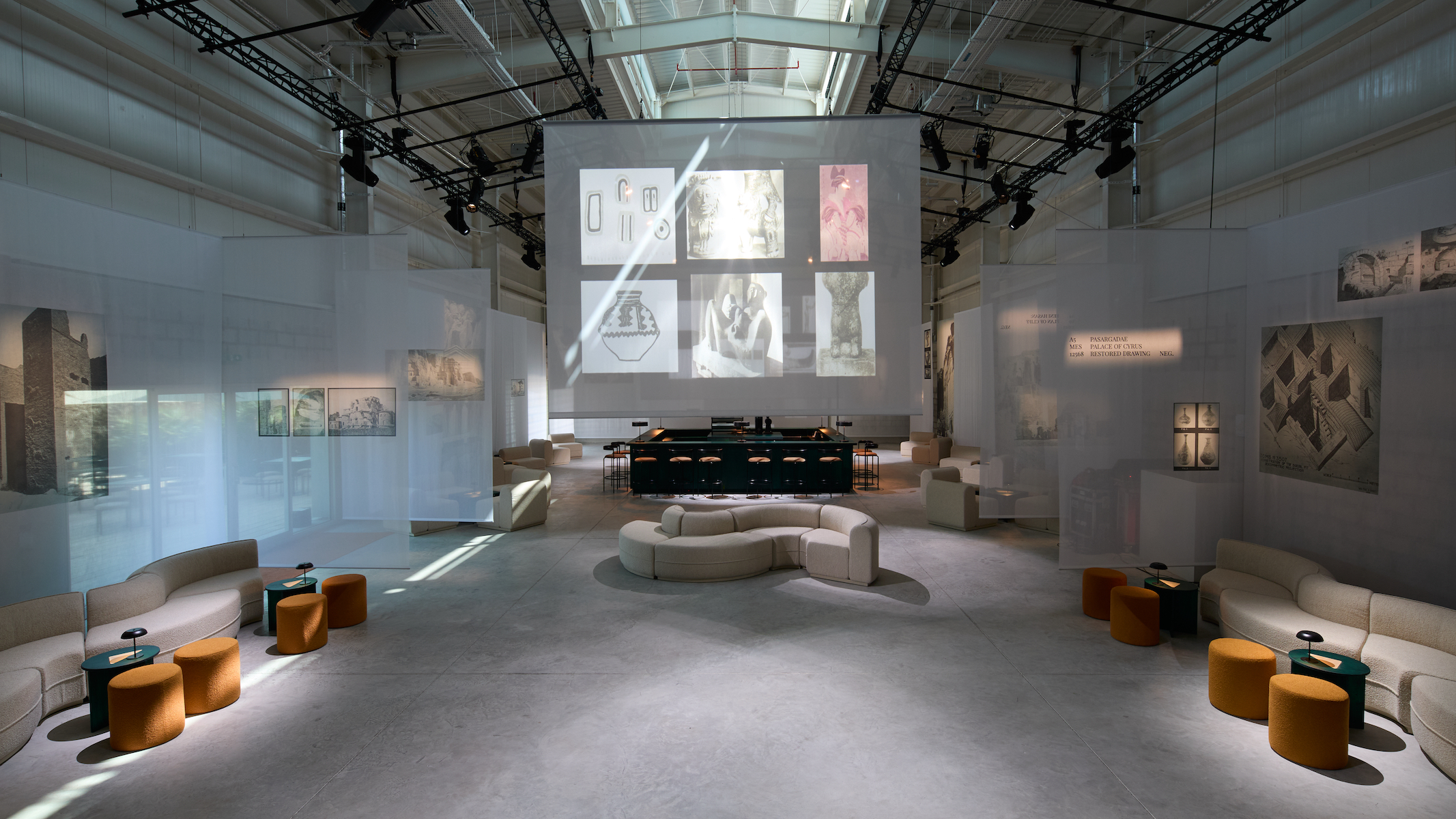
Gates saidhe asked his team to pull up ‘everything that feels in some way connected to the sacred’
Orla Brennan is a London-based fashion and culture writer who previously worked at AnOther, alongside contributing to titles including Dazed, i-D and more. She has interviewed numerous leading industry figures, including Guido Palau, Kiko Kostadinov, Viviane Sassen, Craig Green and more.
-
 Put these emerging artists on your radar
Put these emerging artists on your radarThis crop of six new talents is poised to shake up the art world. Get to know them now
By Tianna Williams
-
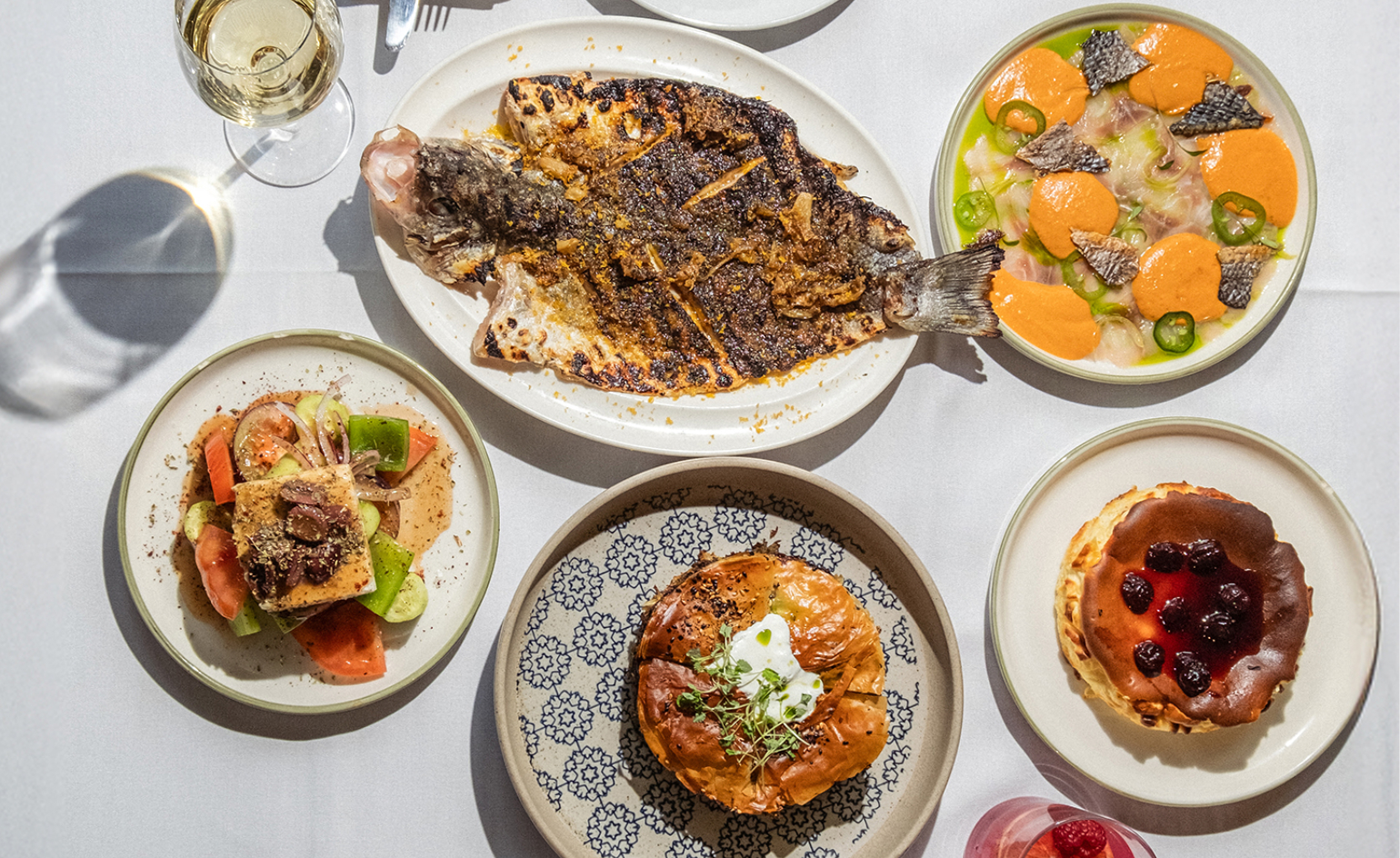 Dining at Pyrá feels like a Mediterranean kiss on both cheeks
Dining at Pyrá feels like a Mediterranean kiss on both cheeksDesigned by House of Dré, this Lonsdale Road addition dishes up an enticing fusion of Greek and Spanish cooking
By Sofia de la Cruz
-
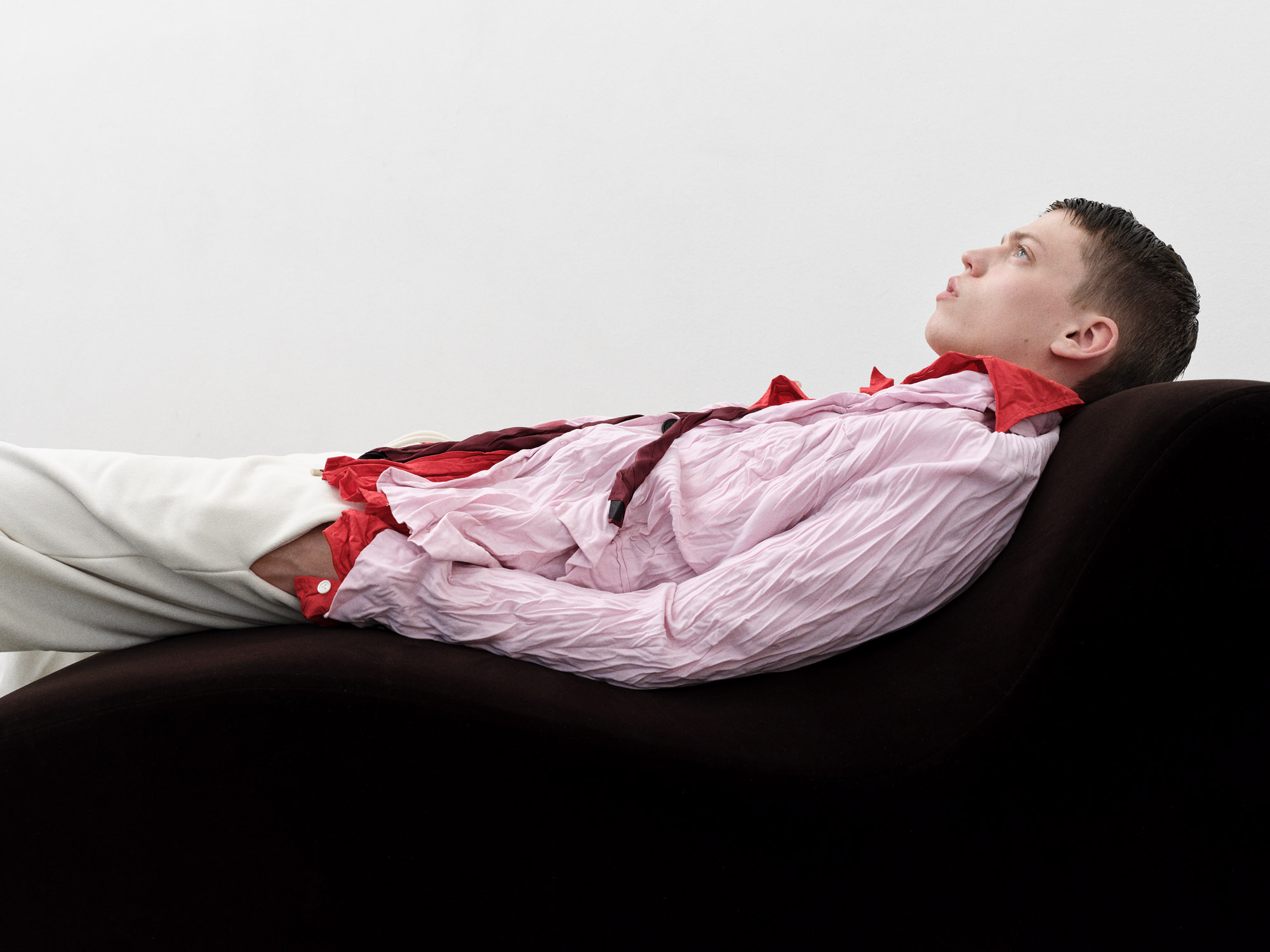 Creased, crumpled: S/S 2025 menswear is about clothes that have ‘lived a life’
Creased, crumpled: S/S 2025 menswear is about clothes that have ‘lived a life’The S/S 2025 menswear collections see designers embrace the creased and the crumpled, conjuring a mood of laidback languor that ran through the season – captured here by photographer Steve Harnacke and stylist Nicola Neri for Wallpaper*
By Jack Moss
-
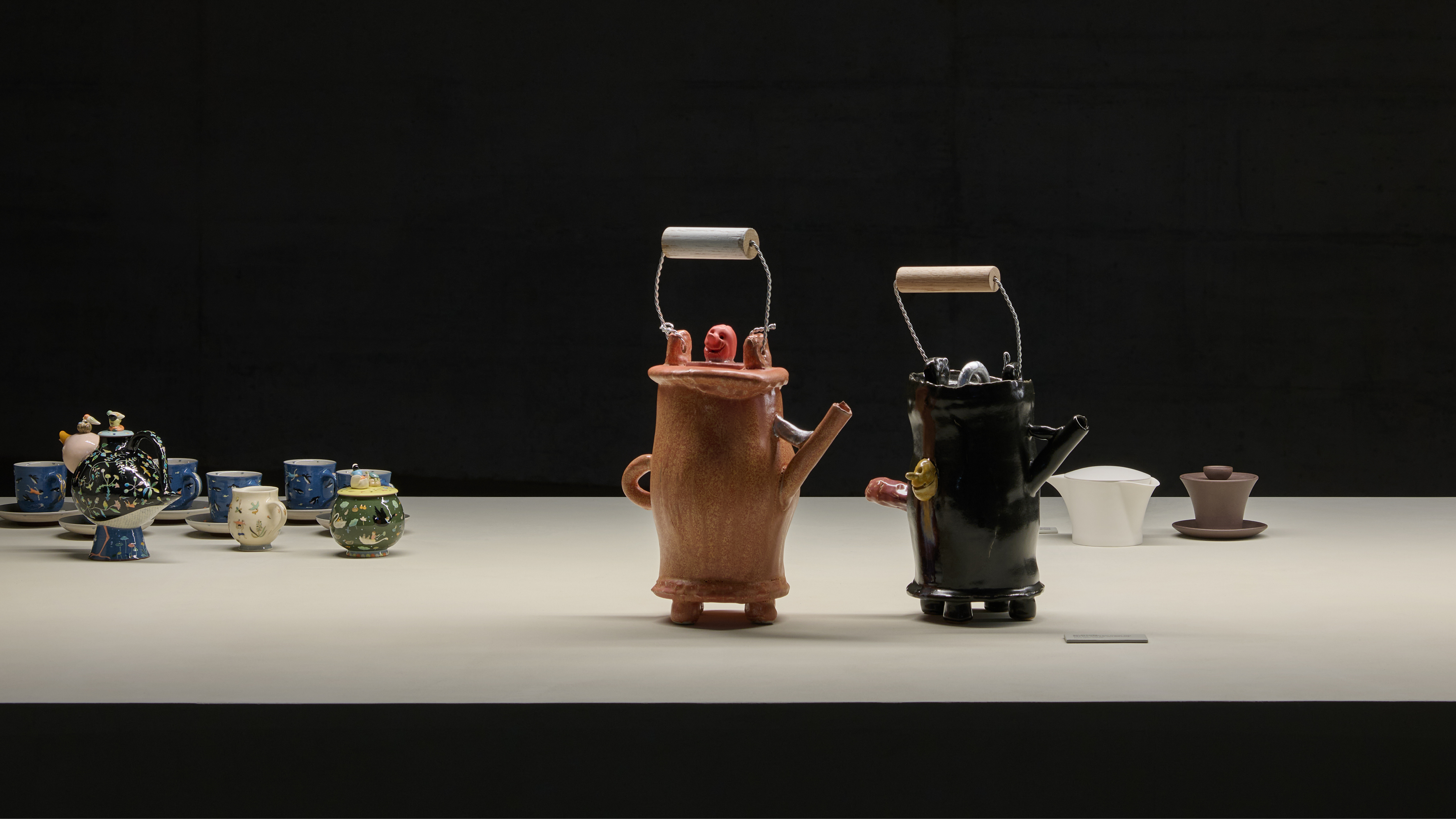 The best fashion moments at Milan Design Week 2025
The best fashion moments at Milan Design Week 2025Scarlett Conlon discovers the finest fashion moments at Salone del Mobile and Milan Design Week 2025, from Loewe’s artist-designed teapots to The Row’s first home collection
By Scarlett Conlon
-
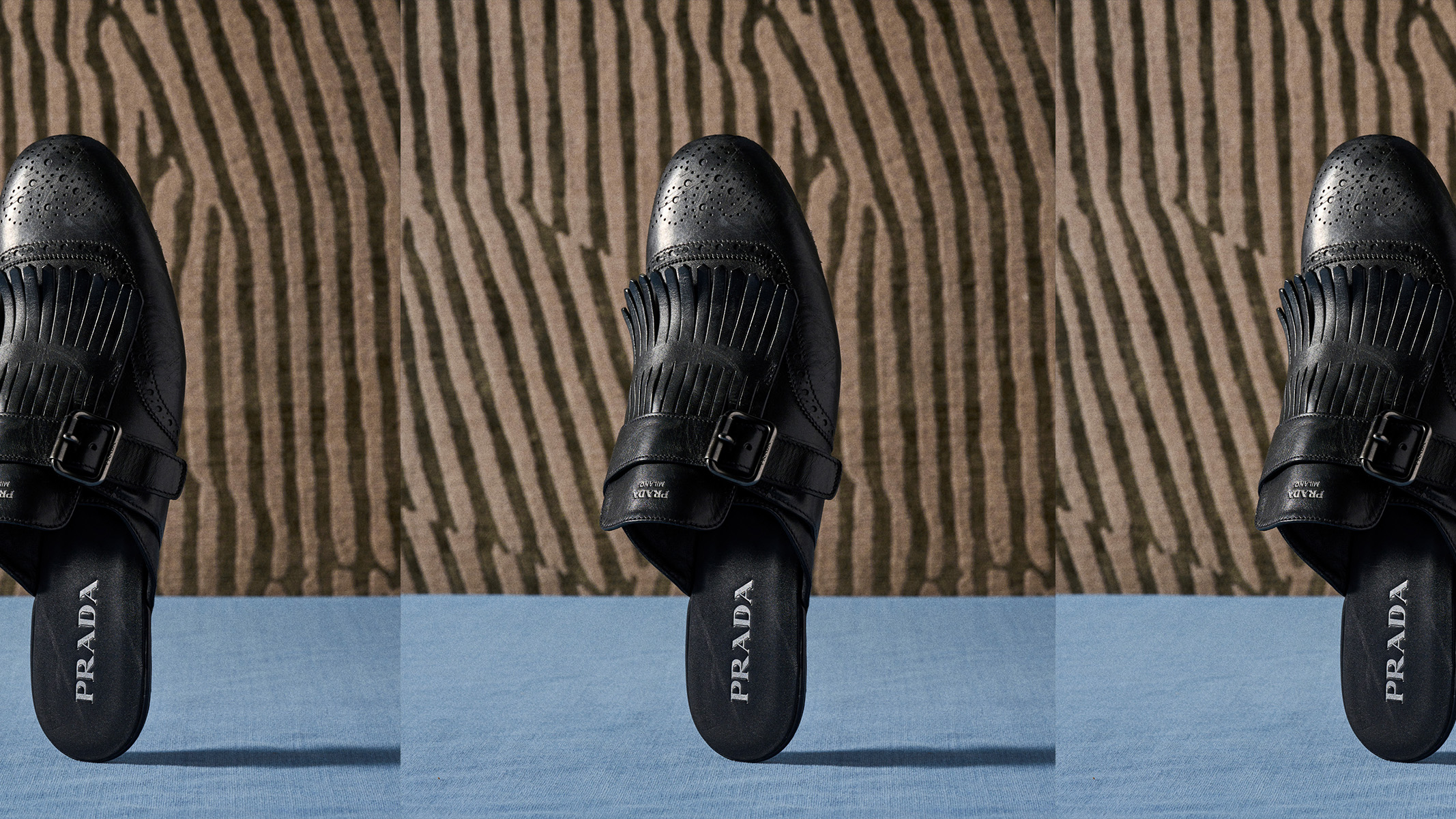 These fringed Prada slippers capture a lived-in elegance
These fringed Prada slippers capture a lived-in elegancePart of Prada’s S/S 2025 menswear collection, these fringed slip-on mules reflect a wider renaissance of the slipper – suggesting the ultimate luxury is to wear your inside attire outdoors
By Jack Moss
-
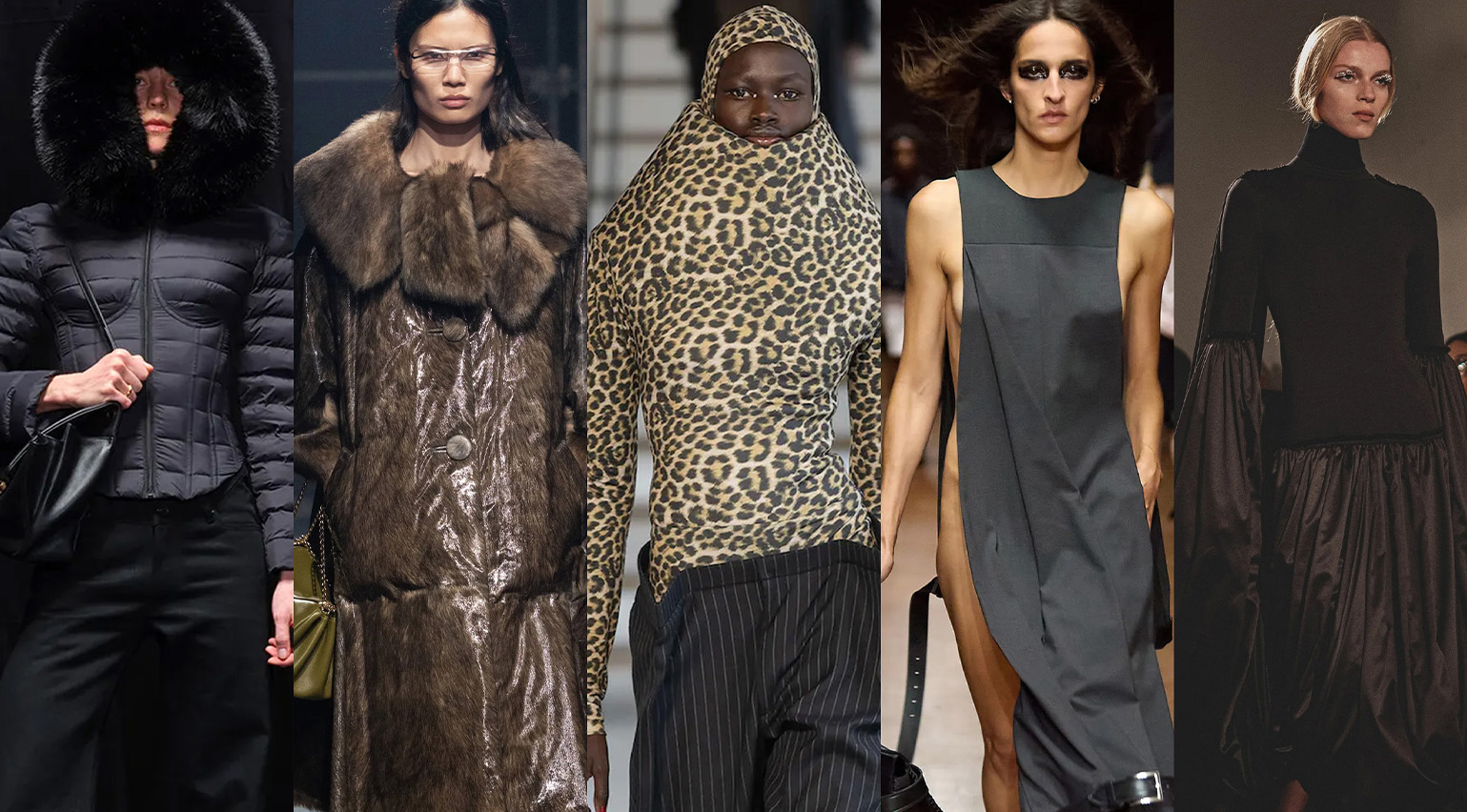 The Wallpaper* A/W 2025 trend report: raw glamour, waistlines and an animal instinct
The Wallpaper* A/W 2025 trend report: raw glamour, waistlines and an animal instinctAs Paris Fashion Week concludes, Wallpaper* fashion features editor Jack Moss unpacks five trends which defined the A/W 2025 season, from ‘raw glamour’ at Prada, sculpted waistlines at Givenchy, to looks made to cocoon and protect
By Jack Moss
-
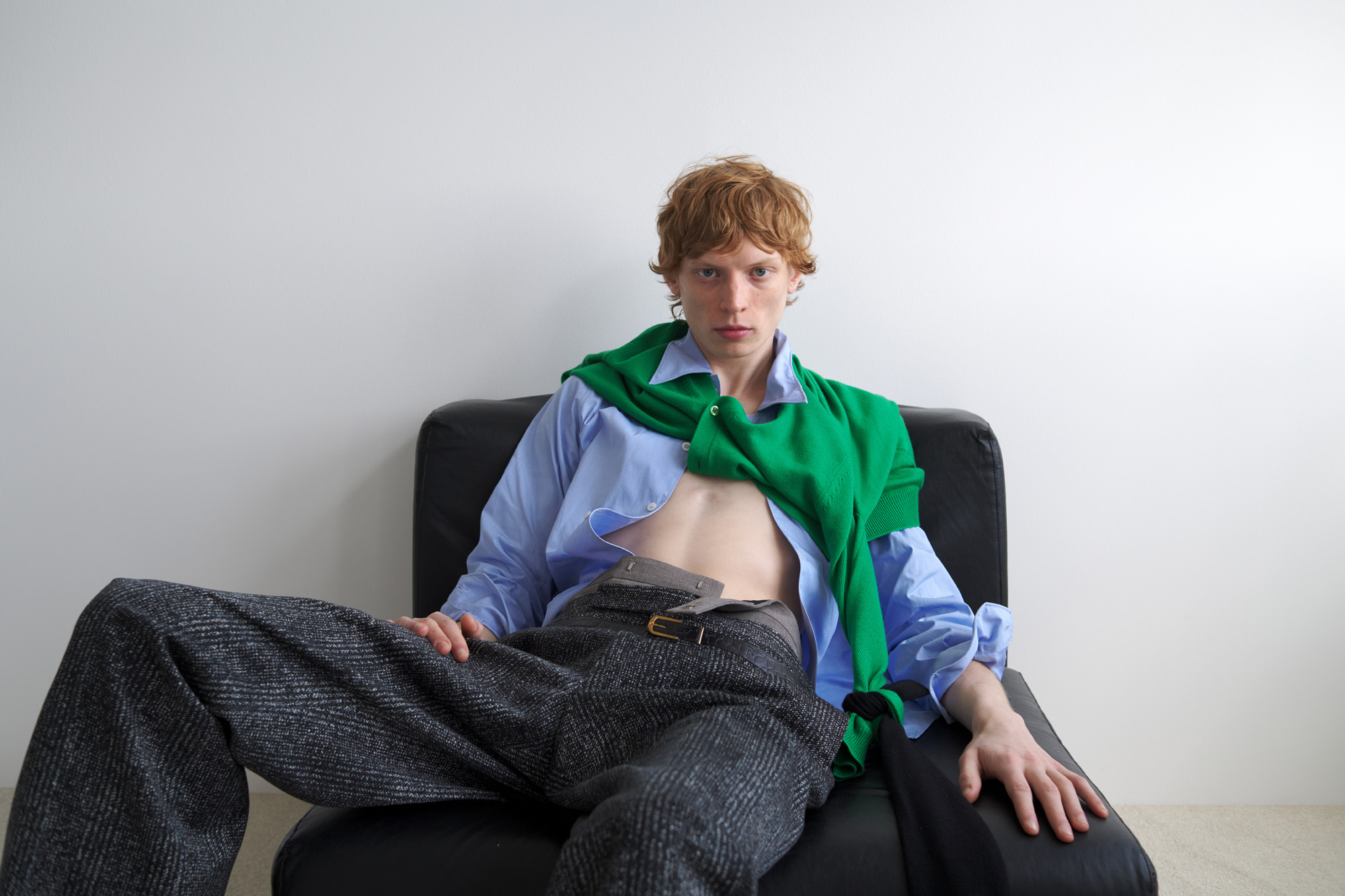 Cut and paste: how to wear the S/S 2025 menswear collections
Cut and paste: how to wear the S/S 2025 menswear collectionsLayered-up and collaged looks capture the eclectic mood of the S/S 2025 menswear collections, giving you a blueprint of how to dress for the season ahead
By Jack Moss
-
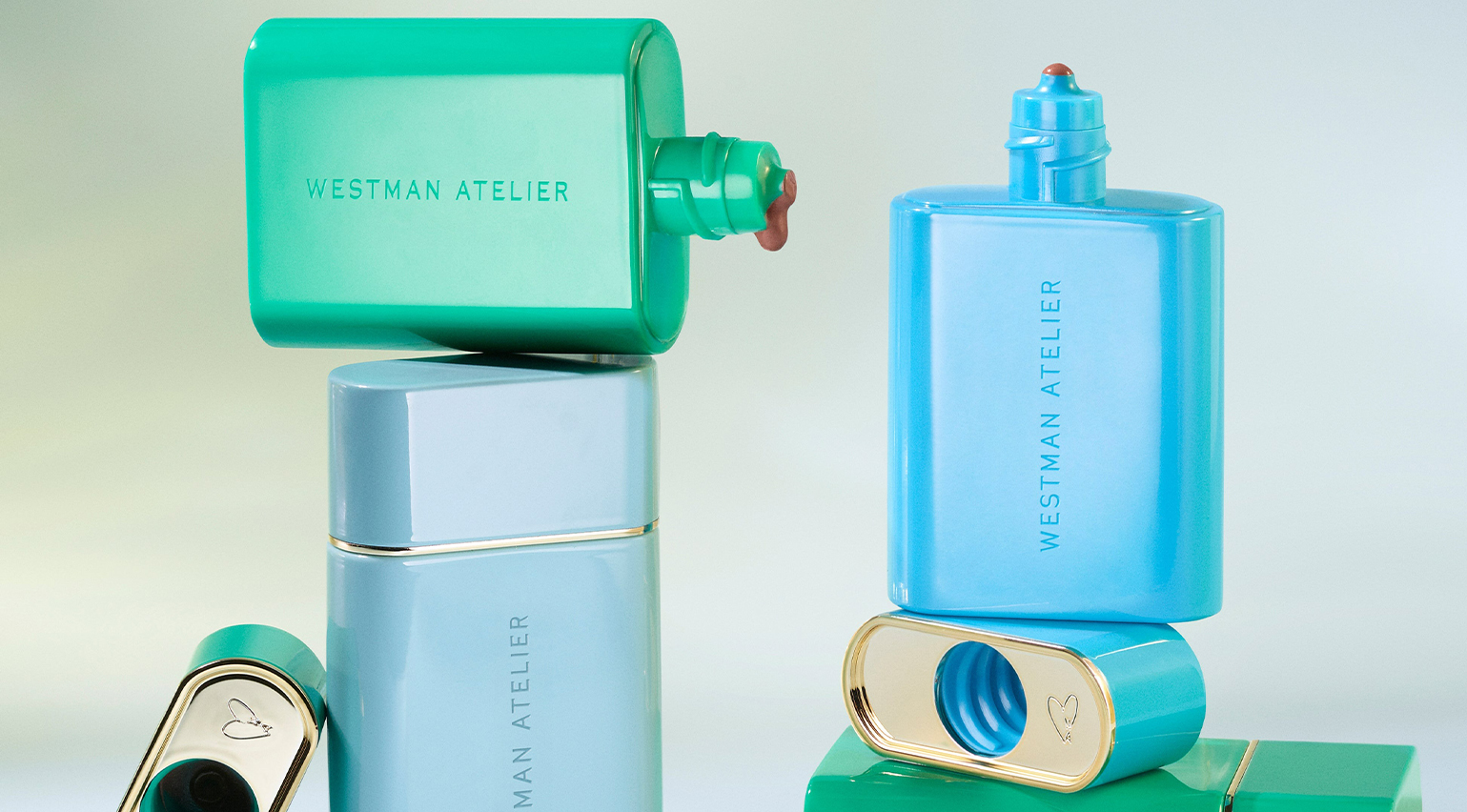 The best beauty products of the month, from Prada mascara to Westman Atelier’s bronzing drops
The best beauty products of the month, from Prada mascara to Westman Atelier’s bronzing dropsThe best beauty products of the month, selected by Wallpaper*, include a new Prada mascara, Westman Atelier’s bronzing drops and more
By Hannah Tindle
-
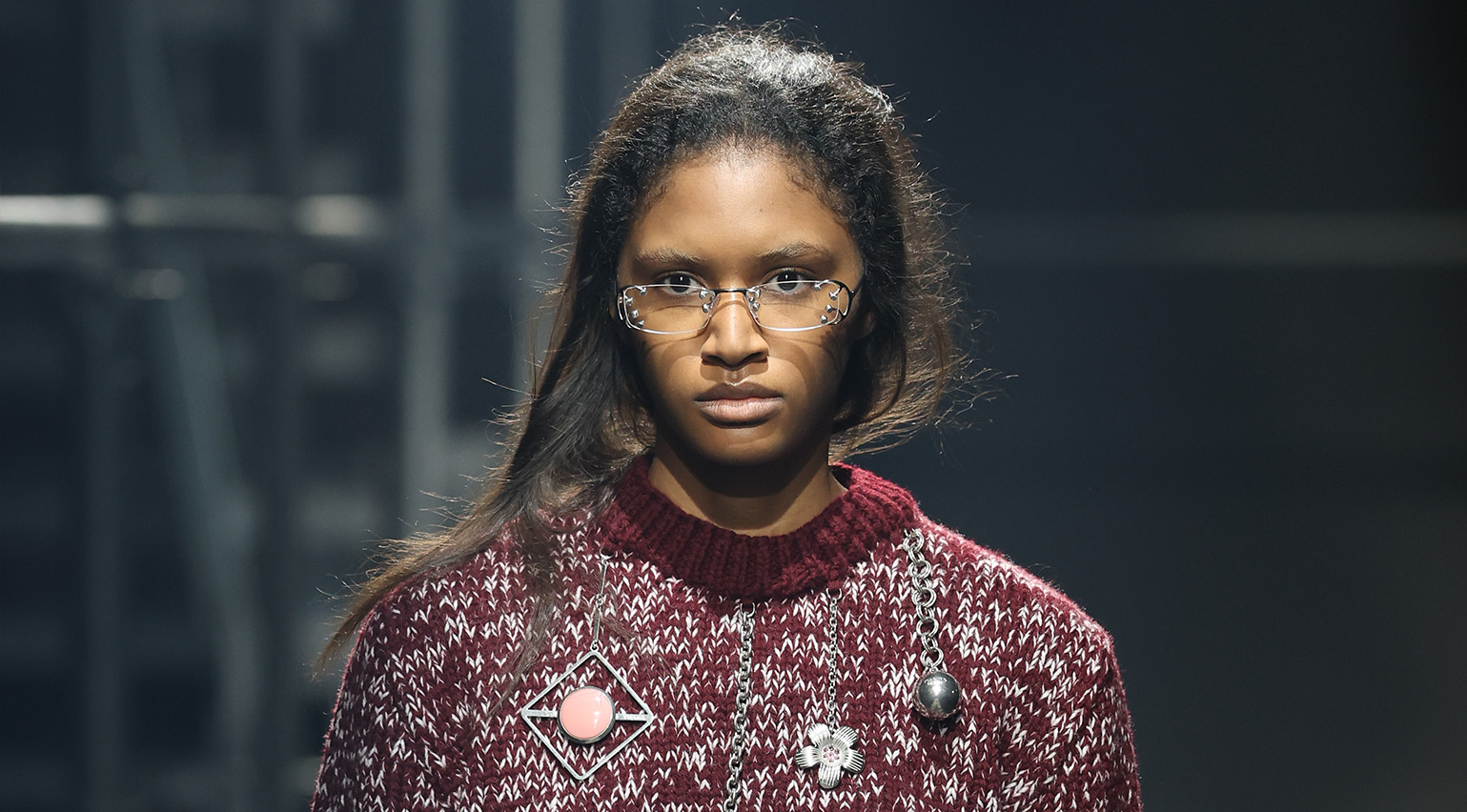 Prada A/W 2025’s ‘dishevelled’ beauty look confronted the big tech algorithm
Prada A/W 2025’s ‘dishevelled’ beauty look confronted the big tech algorithmAt Prada A/W 2025, Guido Palau and Lynsey Alexander subverted prescriptive codes of ‘femininity’ through hair and make-up
By Hannah Tindle
-
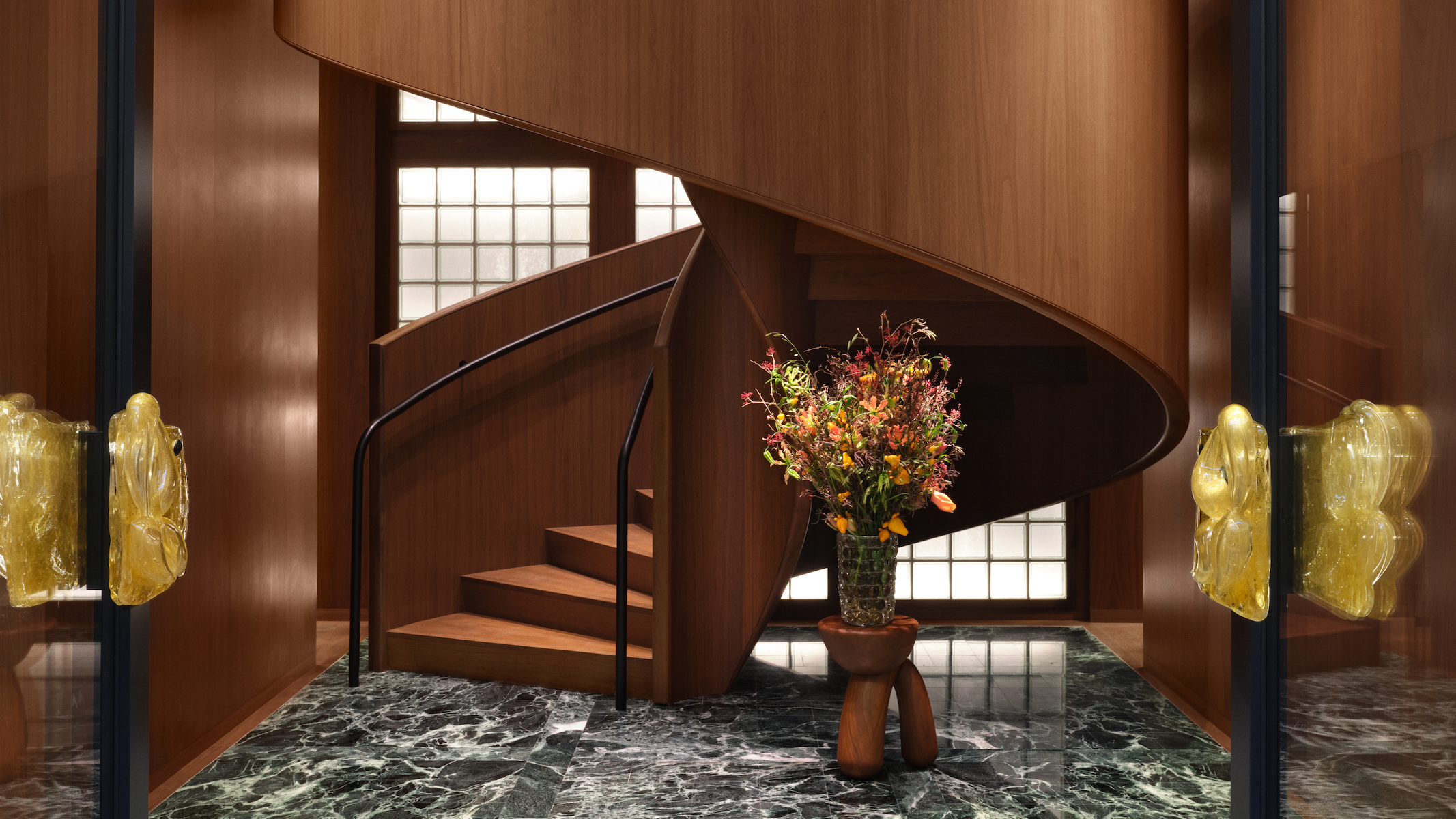 A guide to the best fashion stores Milan has to offer
A guide to the best fashion stores Milan has to offerAs Milan Fashion Week arrives in the city today (25 February 2025), Wallpaper* picks the must-visit Milan fashion stores – from hidden vintage hangouts to concept spaces and big-name boutiques
By Mary Cleary
-
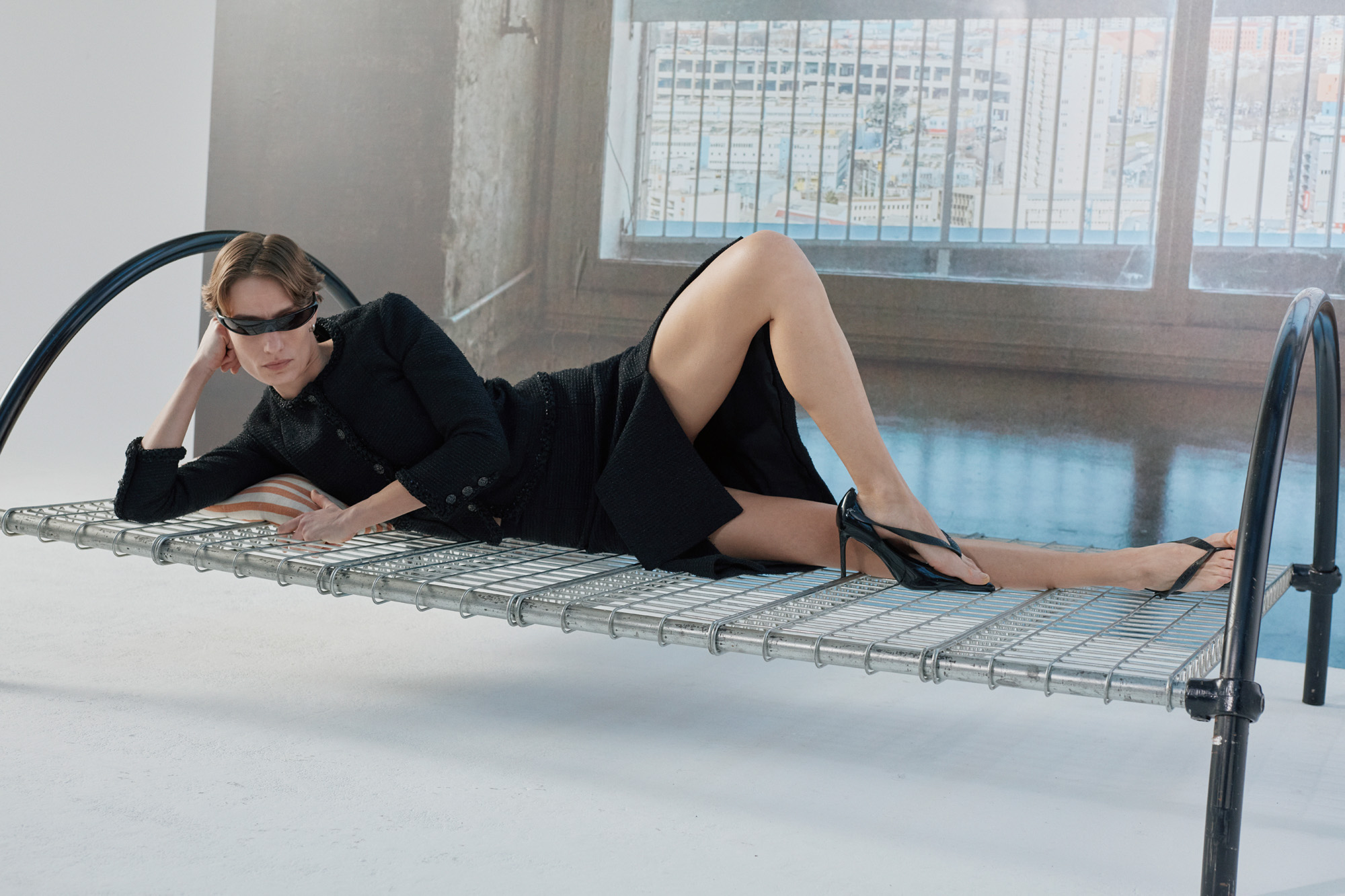 For S/S 2025, nothing is quite what it seems with these twisted wardrobe staples
For S/S 2025, nothing is quite what it seems with these twisted wardrobe staplesTrompe l’oeil, twisted silhouettes, unexpected fabrications: S/S 2025 sees designers play on wardrobe staples in increasingly surreal ways
By Jack Moss